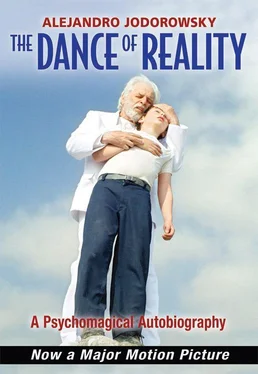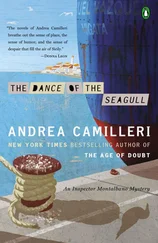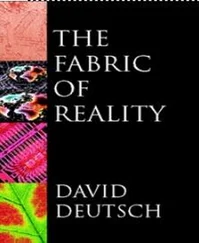I asked the actor to give me the great honor of polishing his name every morning. He flatly refused.
“No, boy. I know your intentions are good, that you admire me, but in order to be, you have to learn not to want to be anyone else. By polishing my letters, in a way, you would steal my power. Your name is Alejandro, like mine. Your devotion is bound to turn into destruction. One day you will have to cut my throat. In primitive cultures, the disciples always finish by devouring their master. Go and fertilize your own name, learn to love it, exalt it, discover the treasures contained in it. You have nineteen letters. Find the Tarot card called The Sun.”
The performances continued. The audience filled the theater. My acting was getting better, causing more laughter and applause every time. On the day when a fan threw a bouquet of flowers to me, the lead actor once again called me into his dressing room.
“I’m sorry, young namesake, you must come here no more. I will give you seven days. I have to replace you.”
“But, Don Alejandro, the theater is full for every performance, I receive applause, good reviews, and all my jokes make them laugh.”
“That’s the trouble. You stand out too much. You think only of yourself and not of the entire work, and I am the only one here who has the right to think of only himself. A wheel holds up an axle, nothing more. It is I who they come to see. Everything must revolve around me. Understand: I am taller than you, and taller than all the other actors. I only hire people shorter than me. And so I stand out. And that’s fair. When you enter a game, you must respect its rules or the referee will expel you from the court. You have been increasing the humor of your scenes. Since I have to maintain the overall balance, I have to struggle to outshine you in every performance. If this continues, I will have a heart attack soon. Look, boy, I became an actor mainly out of laziness: I do not like to work or make any great effort. Above all, I do not like fighting to defend what is mine. And don’t look at me like that, as if you think I’m an immense egotist. I don’t have to give you what I got with my own efforts, with no one helping me. The audience that comes to this place, which not by coincidence is called the Empire Theater, is mine and no one else’s. You don’t get to steal it from me, shielding yourself behind the hypocritical belief that because you are young the old winner should give you his secrets and hand over what he’s earned from a life of efforts. In any case, the people who come here correspond to my human and cultural level. They will never understand you: their ordinary taste will limit you. Go create your own world. if you can. You will have to shackle your inner child, which is afraid of investing and is constantly asking for things to be given to it.”
“But Don Alejandro who will be able to replace me in seven days? In a certain way, of course second to you, I’m holding up the show.”
“You’re naive, namesake. In my company, all are necessary but none is indispensable, except for me.”
I received the lesson of my life: when I attended my replacement’s first performance, wearing a sarcastic smile, I saw that he was none other than the ex-boxer and injection assistant, grotesquely dressed in a costume that was a poor imitation of what I had created for my character. This clumsy man, with his disastrous diction, was more of a rock than an actor. Bathed in sweat, badly doing as best he could, he made me feel pity. I thought, “That’s it for this play. At the end, people are not going to clap; Flores will finally see what I contributed.” But to my surprise, the audience applauded with the same enthusiasm as always. The curtain went up and down seven times or more. The star of the show, with his long arms spread open amidst his modest supporting actors, received the usual ovations. El depravado Acuña finished up the season with a full house. I was reminded of a fable from Aesop: a mosquito comes and settles in the ear of an ox. It announces, “Here I am!” The ox continues plowing. After a while, the mosquito decides to leave. It announces, “I’m leaving!” The ox continues plowing.
I tried to form my own theater company, but very soon lost enthusiasm. I realized I did not like theater that imitated reality. To my mind, that kind of art was a vulgar expression: trying to show something real actually recreated the most apparent and also the most vacuous dimension of the world as seen within a limited state of consciousness. This “realist theater” seemed to me to be uninterested in the dreamlike and magical dimension of existence, and I still believe today that generally speaking human behavior is motivated by unconscious forces, whatever the rational explanations they may attribute to them. The world is not homogenous, but is an amalgam of mysterious forces. Viewing reality as nothing more than immediate appearances betrays it. Thus, detesting this limited form of theater, I began to feel repulsion for the notion of authorship. I did not want to see my actors repeating a previously written text like parrots. Making them creators, rather than interpreters, required everything other than speaking: their feelings, desires, needs, and the gestures they made to express those things. I decided to form a silent theater company for which purpose I began studying the body, its relationship with space, and the expression of its emotions.
I found that all emotions began with the fetal position — intense depression, extreme defense, hiding from the world — to arrive at what I called “the euphoric crucifix,” joy expressed with the trunk erect and arms spread out as if to embrace the infinite. Between these two positions was the full range of human emotions, just as all human language stood between a firmly closed mouth and a fully open mouth, just as everything from selfishness to generosity, from defense to surrender, existed between a closed fist and an open hand. The body was a living book. On the right side, ties with the father and his ancestors were expressed; on the left side, ties with the mother. In the feet was childhood. In the knees was the charismatic expression of male sexuality; in the hips, the expression of feminine sexual desire; in the neck, the will; in the chin, vanity. In the pelvis, courage or fear. In the solar plexus, joy or sadness. This is not the place to describe everything that I discovered during this epoch. To deepen this knowledge, I did what many do: I began teaching what I did not know. I started a silent theater class. And, while teaching, I learned a great deal. (Years later, I became convinced that the healer who is not sick cannot help his patient. In trying to heal another, one heals oneself.)
My best student was an English teacher in a boys’ boarding school who had a monstrous but extraordinary physique. He was extremely thin, with a head that looked as if it had been crushed from the sides; even seen from the front, his face looked like a profile. His name was Daniel Emilfork. He had been an accomplished dancer. For sentimental reasons he had tried to commit suicide by jumping in front of a train; he had survived but lost the heel of one foot. No longer able to dance as he used to, for a few select admirers he would dance to Bach and Vivaldi records in his apartment, balancing on his good foot, moving his trunk, arms, and mutilated leg. Some friends took me to see him. I fell into ecstasy: here was the perfect actor for my silent theater. I suggested he collaborate with me. Daniel, earnestly melodramatic, told me, “I have suffered martyrdom beyond the stage. If you propose that I act in the manner you have described, you come as an angel to transform my life. I shall abandon the boarding school and dedicate myself body and soul to following your instructions. However, you must know that I’m a homosexual. I do not want any misunderstandings between us.”
Читать дальше












